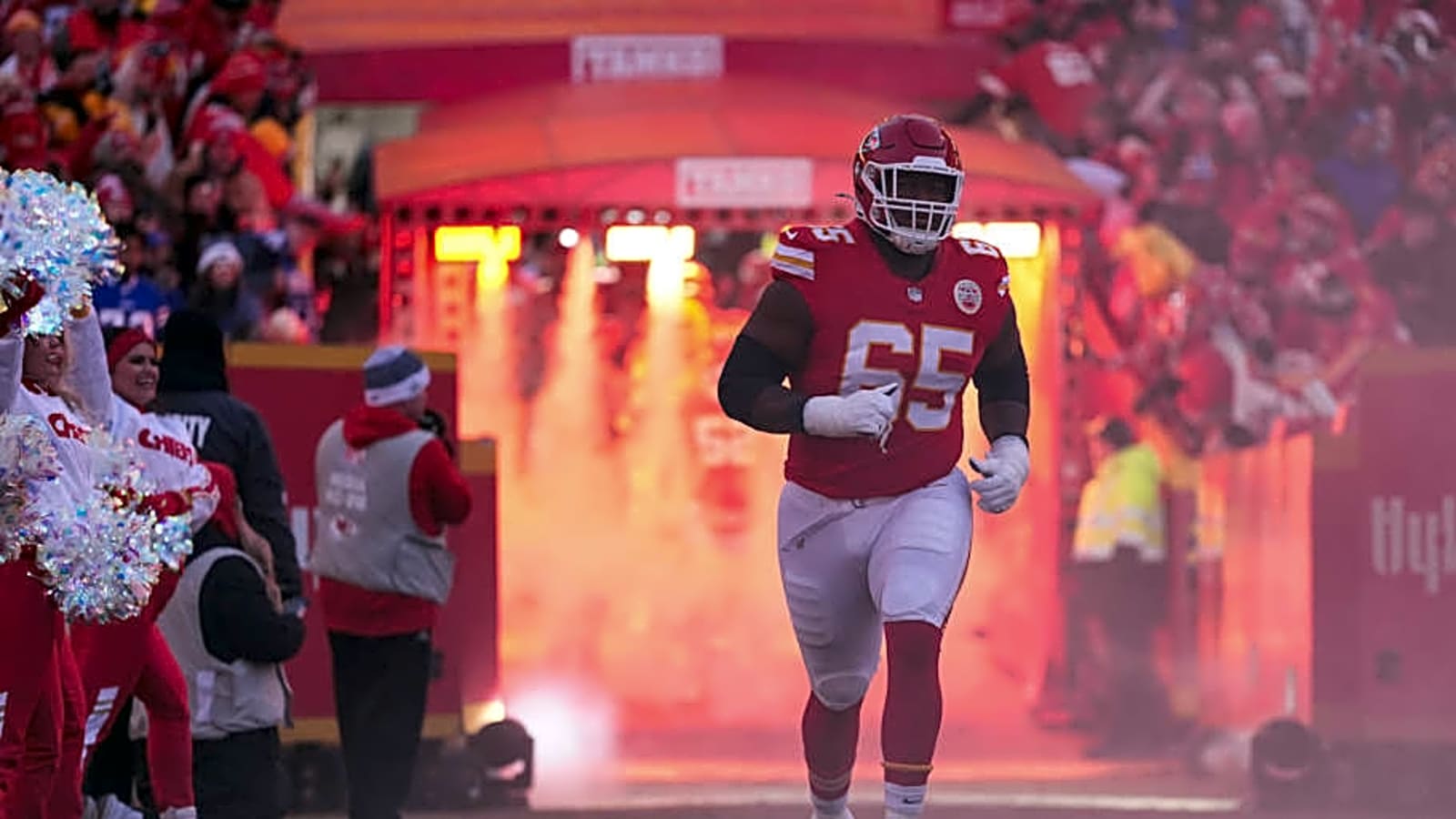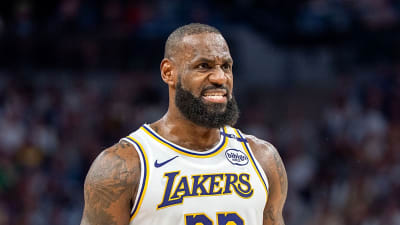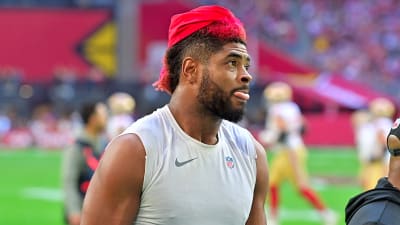
The parties involved kept negotiating into the 11th hour, but the Kansas City Chiefs and Trey Smith were able to find common ground on a new contract extension shortly before the NFL's deadline for franchise-tagged players to reach a long-term deal.
When looking at the finances involved, Smith should feel very good about the way things turned out. His new pay rate is quite a bit more than the relative pennies he's been earning at the pro level. Smith's contract also set new financial metrics for guards in the National Football League.
Smith was the recipient of a new four-year contract worth up to $94 million. The best part is the $70M in practical guarantees attached. Smith's contract includes $46.75M fully guaranteed, but there's every reason to believe Smith will be on the roster on March 15 of next year—the clause that guarantees Smith's 2027 salary.
Both the average annual value of $23.5M and the $70M in guarantees were records at the position. Smith's contract set a new market rate for elite guards, and those who follow in the pipeline will be grateful for the advanced terms established.
Trey Smith's deal with the Chiefs is a significant step forward for the guard market.
Just how much better was Smith's deal than those who came before him? Let's take a look.
Over the last two years, the guard market has been completely reset with the deals by the Atlanta Falcons and Carolina Panthers to Chris Lindstrom and Robert Hunt, respectively. Lindstrom was the first to cross the $20M annual threshold in 2023, and Hunt followed suit in 2024.
Both Lindstrom and Hunt, however, fell behind Landon Dickerson of the Philadelphia Eagles in average annual value with a four-year, $84 million deal given one year ago—good for a $21M/year sum. Smith's deal is a significant step ahead there with an average of $23.5M, a major raise at the position in a single season.
As for practical guarantees in a contract (that which is fully guaranteed plus those bonuses with clauses that are very likely to be met), Smith's total at $70M is $7M higher than the $63M given to Hunt—and he even had another season attached to the deal.
The one aspect of the deal that fell short of market highs comes in the actual length of the deal. While the Chiefs offered Smith plenty of security with a contract through the 2028 season, both Lindstrom and Hunt were able to procure five years on their respective deals. That said, it's hard to view this difference as a negative for Smith, knowing that he can re-enter free agency at the age of 30.
From the Chiefs' perspective, they were already on the hook for nearly $24M for the coming season due to the use of the franchise tag on Smith. They were also locked into making a deal after having traded Joe Thuney away in the spring. The final deal of Smith's contract comes without guarantees which means the Chiefs have an out before 2028 in case something goes awry.
Overall the deal feels like a win for both sides. The Chiefs have an ever-improving guard already ranked among the best in football. Smith gets long-term security and the chance to stay with the contender that drafted him. The fact that he's blocking for the best QB in the business is a plus for both sides.
It's a deal the Chiefs had to get done either way. Now they have their offensive core locked up for years to come, while Smith's team can boast of taking such a fantastic financial leap forward.
More must-reads:
- Injury list designation raises concerns about Bears' Pro Bowl DB
- Bengals still refuse to change language in Shemar Stewart contract talks
- The 'NFL rookie 1,000-yard receivers' quiz
Breaking News
Trending News
Customize Your Newsletter
 +
+
Get the latest news and rumors, customized to your favorite sports and teams. Emailed daily. Always free!








